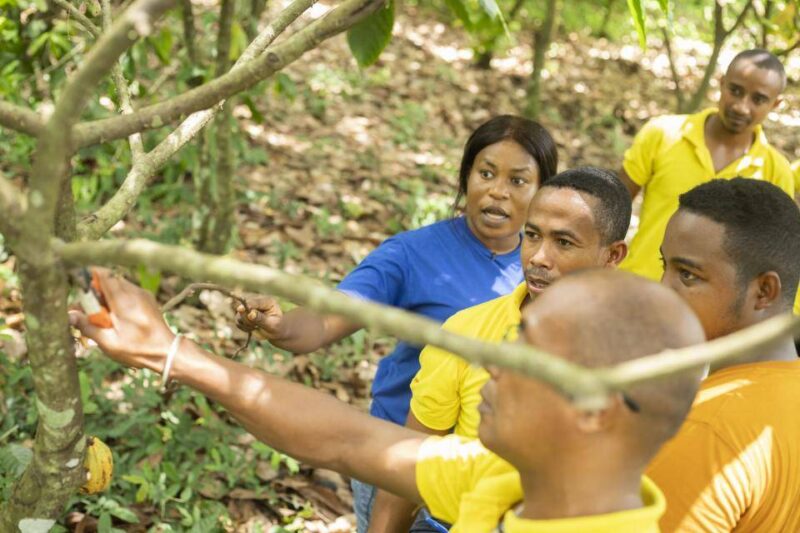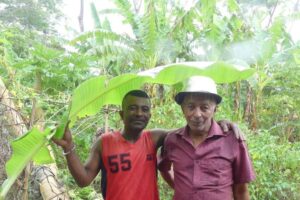Barry Callebaut supports extension of Madagascan cocoa crop diversification venture

pic: Barry Callebaut
Barry Callebaut has confirmed the extension of an innovative project designed to help improve the livelihoods of vanilla farmers in Madagascar focused on developing cocoa as an additional source of income, writes Neill Barston.
As the company noted, the venture, which began in 2016, has sought to offer agricultural workers a valuable extra revenue through providing opportunities for crop diversification to meet a growing demand for premium confectionery ranges.
Consequently, vanilla supplier Prova and Barry Callebaut, with its cocoa expertise, in combination with support from the Sustainable Trade Initiative (IDH) have teamed up to support vanilla farmers in introducing cocoa trees on their farm, providing training to improve the productivity and quality of crops while also funding and supporting local communities through social, health and education schemes.
Underlining its success, during the past six years, the sustainability initiative has supported 700 vanilla farmers. The crop diversification has been complemented by vital training in good agricultural practices (GAP), as well as in financial resilience and independence.
As Barry Callebaut noted, final audit interviews with participating farmers, the majority with no previous experience in cocoa cultivation, clearly underline the case for continuation. Farmer Georginot Lorissa (41) is still actively supported on the ground by his 73-year-old father (below).

pic: Barry Callebaut
By December 2021 this family was producing 10% of the diversification program’s total cocoa volume. For this family and many others, the future-oriented scope of the engagement was vital. “We see you take us seriously,” Georginot Lorissa explains.
On another property, farmer Alexis Bezandry (64) reflects on his personal motivation for agricultural diversity: “I sent my children to school with the dream that one day they could become a doctor or astronaut if they wished. Now they are both in college.”
As the company added, well-defined project-funded measures enabling the lifestyle improvements of the farmers have included the construction of a water well and a technical school for young graduates and financial support for two medical clinics. School meals, scholars’ kits, plus a static and mobile library, have also been provided. The strong engagement in health and education within the farming communities had positively impacted over 25,000 people by May 2022.
Furthermore, while it was initially hard for the vanilla farmers to visualise that crop diversification could translate into income stability. As the cooperation progressed, and their knowledge and experience grew, this possibility became very real. Cultivating cocoa alongside their vanilla means they can harvest (and sell) cocoa beans every two weeks and secure a monthly income all year round. This is a welcome complement to the annual harvest of vanilla, particularly during the five-month period when they are typically without an income. To date, over 40% of the farmers involved are successfully growing and selling cocoa, some are already forming a cocoa cooperative and a centralised cocoa fermentation centre has been built.
Massimo Selmo, Chief Procurement Officer at Barry Callebaut, welcomed the initiative’s extension. He said: “This long-term project has shown the value of partnering with our main vanilla supplier to achieve positive change in a challenging environment. By combining our expertise in sustainability and cocoa we enabled farmers to diversify and therefore grow their income. The success of the past five years has prepared the ground for further expansion of both our partnership and of our commitment to sustainable vanilla and cocoa sourcing from Madagascar.”



